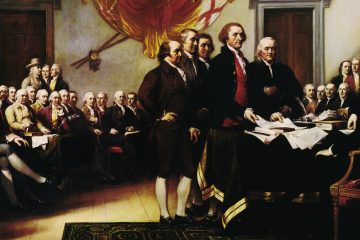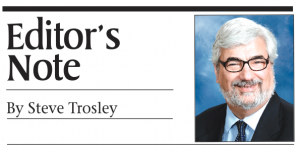Editor’s Note: Outrage over conduct clause is confusing
The outrage about the conduct clause in the Archdiocese of Cincinnati teachers’ contract leaves this management veteran confounded and confused.
In the several decades of my career in newspaper management, I enforced company policies that supported corporate and professional identity that included things as simple as dress codes and as complicated as journalistic ethics and off-hours personal behavior.
As early as the 1980s, my manager-peers often discussed how uncomfortable we were having to spell out our behavioral expectations but that we lived in a world where fast food restaurants had to put “hot” warnings on their coffee cups to protect them from litigation, not that it always helped.
I have enforced rules on dress that included a necktie requirement, a restriction on short pants and even the type of shoes we did not allow. My company at the time also had rules on piercings. We believed it was difficult to project a professional identity when your face looked like it collided with a Macy’s jewelry counter.
The editor who felt it was OK to vent his frustration with others in graphically obscene language in a newsroom open to the public area of the building learned that his services were not so valuable that his bad behavior would be tolerated. The reporter who felt it was his duty to his friends to control what stories from his beat were published soon learned the complexities of navigating the state unemployment office.
The columnist who felt the heavy obligation of being critical of her company and managers when she did not get the assignment she relished learned that her many compassionate supporters evaporated when she no longer had the privilege of using her employer’s newspaper to share her opinions. (This was before social media, but it still applies.) The advertising rep who curried favor with his accounts by sharing their competitors’ sales plans so they could beat each others’ price found none of the people he stole information for were eager to hire him after he was terminated.
Sometimes the rules got very personal and applied to private life situations as well. Intra office dating and cohabitating created huge problems within the organization and in how we represented ourselves to others, regardless of how local mores were perceived. When supervisors cohabitated with subordinates in two separate cases, problems erupted and they had to be terminated because of the effects on other subordinates. The employee who was bouncing checks all over town also faced discipline when his reputation besmirched the reputation of the company. We also forbade membership in political organizations, contributions to advocacy groups and the like. A reporter or editor could not get his or her ACLU annual membership, cost $50, or his or her Republican National Committee card, also $50, and work for our organization.
There’s not a manager worth his or her salt who does not know that years and thousands of dollars go into building a company or non-profit reputation and that one rogue employee can destroy it all with one incident of bad behavior.
In the case of my personal experience, a professional news person knows or should know that working in the American media under the protection of the First Amendment is a privilege that assigns corresponding duties and obligations – an accountability designed to reinforce the identity and credibility of the employer and the respectability of the profession.
Teaching in a Catholic school is also a privilege. The teachers have a corresponding duty to honor the identity of their employer, which in this case is Catholic. The church teaches that we are all called to chastity, regardless of sexual orientation or vocation. The unmarried heterosexual teacher has the same obligation as the unmarried homosexual teacher in a Catholic school and that is to support and witness the Church’s teachings on faith and morals.
If one cannot honor that duty, regardless of profession or vocation, he should have the integrity to find other employment.
It’s as simple as that.
+++++++++++++
Trosley is editor-in-chief of The Catholic Telegraph.
This column originally appeared in the May 2014 print edition of The Catholic Telegraph.














